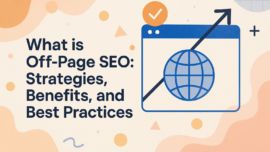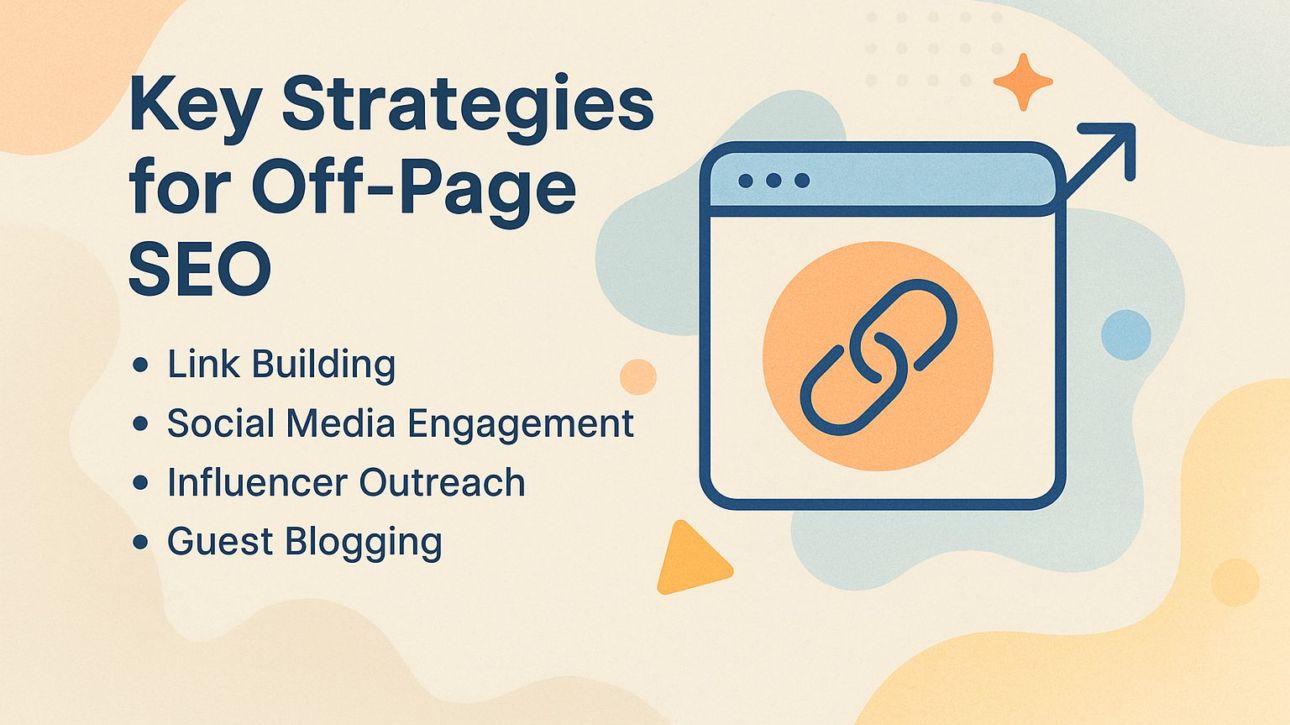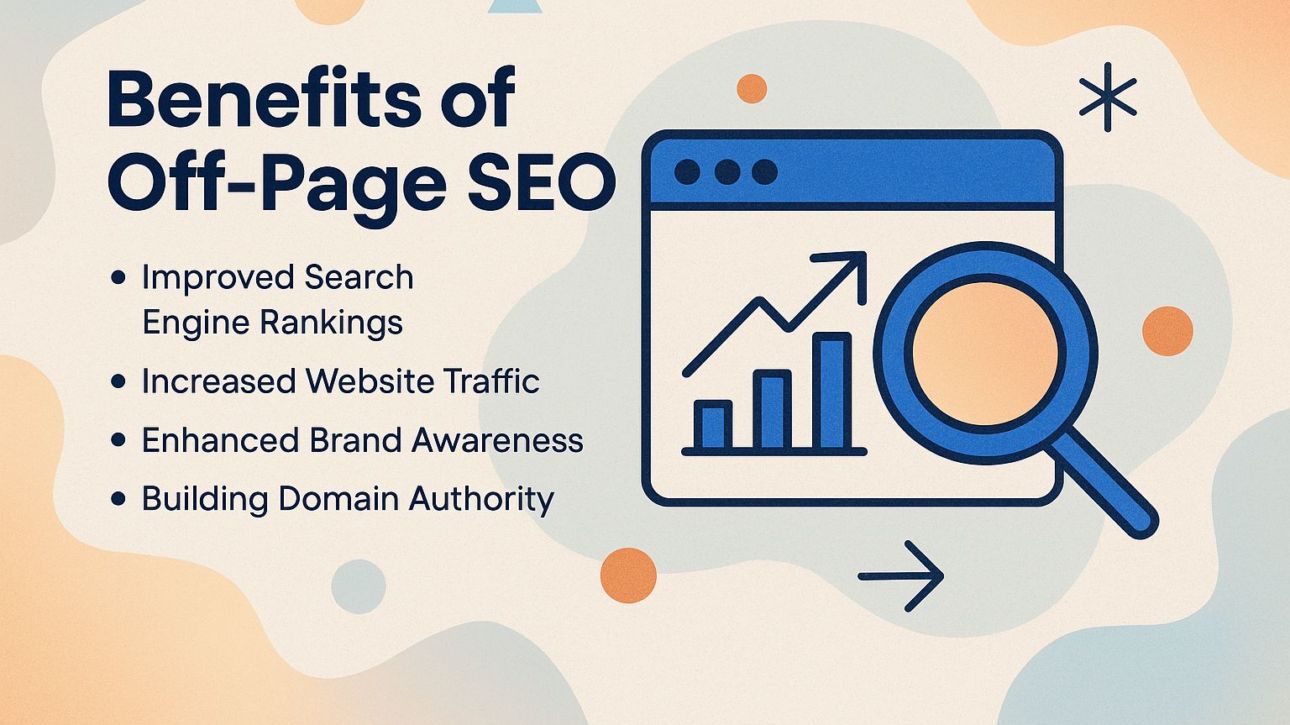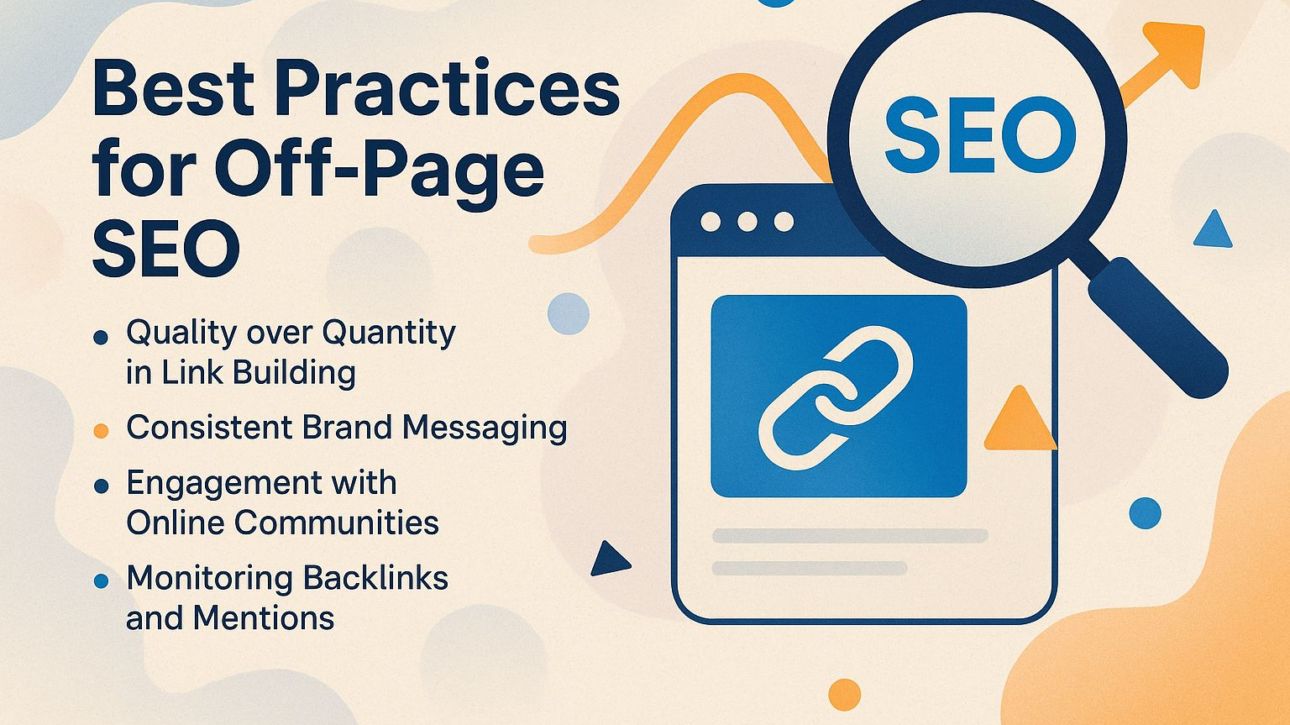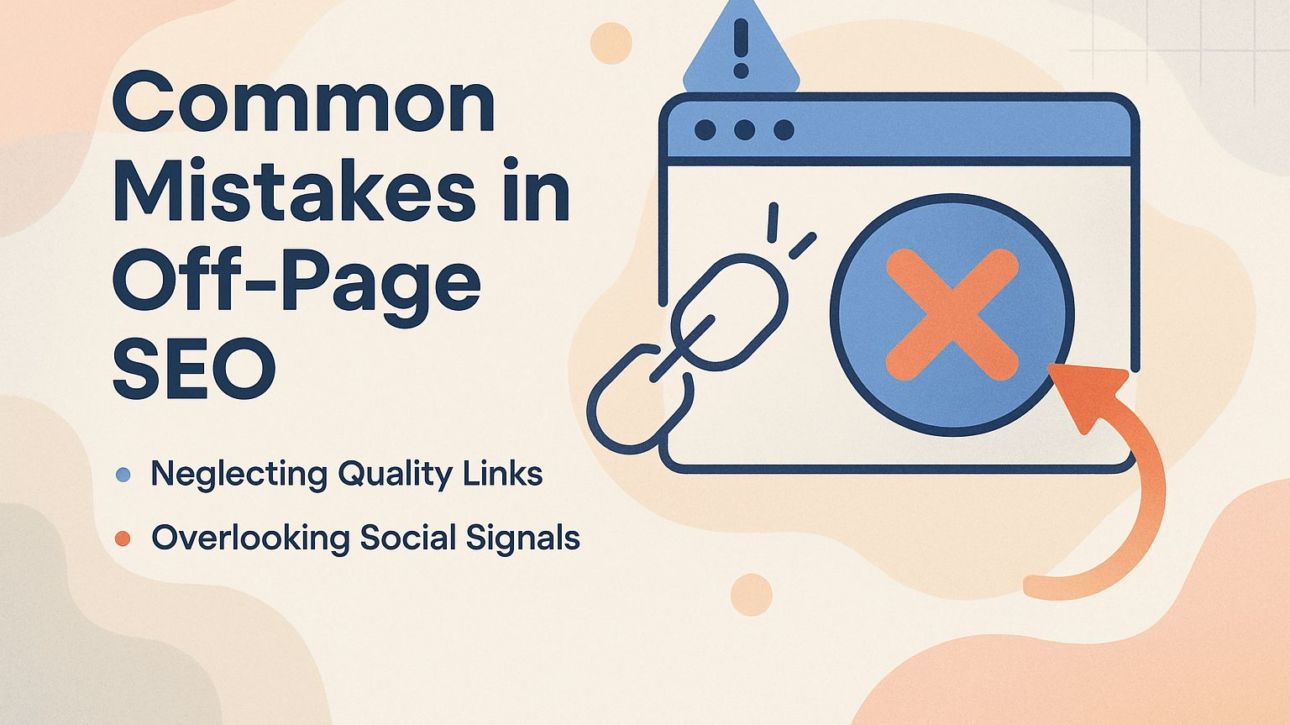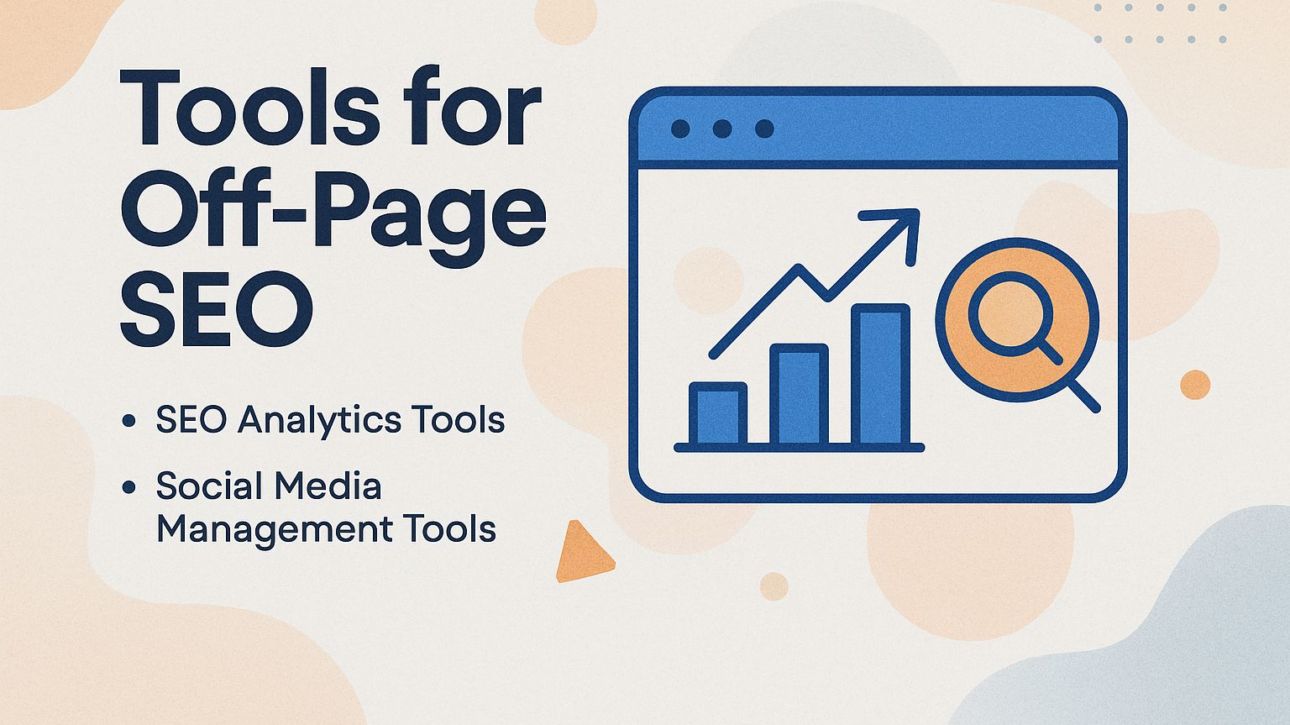Improving off-page SEO can increase your website’s visibility in search engine results, particularly on platforms like Google. By focusing on strategies like building quality backlinks and promoting high-quality content, you can improve your site’s authority and rank higher in search engine results. This article will discuss effective off-page tactics, the benefits they provide, and best practices to help your online presence grow. Get ready to boost your SEO game!
Key Takeaways:
- Off-Page SEO includes activities done away from a website to improve its ranking on search engines and draw more visitors.
- Key strategies for Off-Page SEO include link building, social media engagement, influencer outreach, and guest blogging.
- Off-Page SEO can offer several benefits, like better search engine placement, more visitors to your website, greater brand visibility, and stronger domain authority.
Contents
- Key Strategies for Off-Page SEO
- Benefits of Off-Page SEO
- Best Practices for Off-Page SEO
- Common Mistakes in Off-Page SEO
- Tools for Off-Page SEO
- Frequently Asked Questions
- 1. What is Off-Page SEO and why is it important?
- 2. What are some Off-Page SEO strategies I can use?
- 3. What are the benefits of Off-Page SEO?
- 4. What are some best practices for Off-Page SEO?
- 5. Can I do Off-Page SEO on my own or do I need a professional?
- 6. How can I measure the success of my Off-Page SEO efforts?
1. Definition of Off-Page SEO
Off-page SEO involves actions taken outside of your website to influence your ranking in search engine results pages (SERPs).
Key components include backlinks, which are links from other websites pointing to yours, and social media signals, which reflect engagement and brand visibility on platforms like Facebook and Twitter.
For example, a fitness brand ran a campaign using influencer collaborations, which created many backlinks and greatly increased organic search traffic.
Building a good online reputation through positive feedback and mentions in respected blogs can increase trustworthiness.
Tools like Moz and Ahrefs help monitor backlinks and assess overall off-page performance, guiding effective strategies.
2. Importance of Off-Page SEO
Off-page SEO plays a critical role in establishing your site’s credibility, which is essential for improving search engine rankings and user trust.
By using good off-page SEO techniques, such as getting links from other sites and promoting on social media, you can greatly improve your online credibility.
Research shows that websites with strong backlinks have a 50% higher likelihood of appearing on the first page of Google search results.
By following Google’s guidelines about being knowledgeable, having experience, being credible, and reliable, you can improve your content.
Implement tactics such as:
- Guest blogging,
- Collaborating with industry influencers,
- Actively participating in relevant online forums
to build trust and increase attention.
Key Strategies for Off-Page SEO
Using good off-page SEO techniques is important for improving your website’s presence and credibility in busy online markets.
1. Link Building
Link building remains one of the most impactful off-page SEO strategies, directly influencing your site’s authority and SERP rankings.
- To improve your link building efforts, try writing guest posts on well-respected websites related to your topic.
- Find possible sites using tools like Ahrefs. They have a $99/month plan for checking backlinks and finding guest blogging chances.
- Forge partnerships with complementary businesses to exchange links or co-create content.
- Share top-notch content on social media and online groups to increase its visibility and chances of getting natural backlinks.
- By using different strategies and frequently checking how well they work, you can improve your site’s presence and reputation.
2. Social Media Engagement
Being active on social media can greatly increase how many people see your brand and bring more visitors to your website.
To improve your social media profiles, begin with Hootsuite ($19/mo) to arrange regular posts and monitor engagement numbers.
Make your bio easy to understand and detailed, using important words to help others find you easier. Engage with followers by answering comments and featuring user-generated content.
Frequently review how your posts are doing with Hootsuite’s analytics tools to improve your approach.
To share content effectively, use tools like Canva (free-$12.95/mo) to create eye-catching graphics that attract attention and encourage sharing. Post during the busiest times to get the most views and comments.
3. Influencer Outreach
Working with influencers can spread your brand’s message and build trust with potential customers through recommendations from others.
Begin by finding influencers related to your field with tools like BuzzSumo, which helps you find people sharing your competitors’ content.
Filter by engagement metrics to find top influencers, and track their channels for ongoing campaigns. Send customized emails or social media messages to your contacts, clearly explaining what you offer.
Tools like Hootsuite can help you manage these connections and schedule follow-ups, ensuring your outreach remains organized and consistent. Establish clear collaboration goals and metrics to gauge effectiveness.
4. Guest Blogging
Guest blogging on authoritative sites can provide high-quality backlinks while also establishing your brand’s authority in your industry.
To find guest blogging opportunities, start by researching blogs in your niche that accept contributions. Use tools like BuzzSumo to identify popular blogs and check their guest post guidelines.
When creating your pitch, make it personal by mentioning a recent article on the site and proposing specific topics that match their audience.
A successful example is a tech startup that increased their site traffic by 150% after guest posting on a leading industry blog, demonstrating the substantial impact of this strategy. Aim for a balanced combination of quality and relevance in both your posts and pitches.
Benefits of Off-Page SEO
Using strong off-page SEO techniques can result in big advantages, such as better search rankings and more natural traffic.
1. Improved Search Engine Rankings
A strong off-page SEO strategy can lead to higher rankings in SERPs, enhancing visibility and credibility.
For example, building high-quality backlinks from authoritative sites significantly impacts your domain authority. According to Moz, websites with strong backlink profiles see an average increase of 20-30% in their rankings.
Tools like Ahrefs and SEMrush allow you to analyze your competitors’ link profiles and identify potential link-building opportunities. Engaging in social media and forums can drive traffic and create organic backlinks.
Concentrate on reaching out by writing custom emails to website owners in your field, which can lead to good chances for guest posts and collaborations.
2. Increased Website Traffic
By building authority and trust through off-page SEO, websites can experience a notable increase in organic and referral traffic.
For instance, a tech blog that improved its backlink strategy saw a 40% increase in organic traffic over six months. This was done by using guest articles on well-known websites and sharing informative infographics on platforms like Pinterest.
Participating in online communities and forums increased their credibility and generated referrals, leading to an additional 15% increase in their total traffic.
Using tools like Ahrefs to view backlinks and BuzzSumo to find content can help these strategies, ensuring your website gets the attention it deserves.
3. Enhanced Brand Awareness
Off-page SEO methods like social media activity and reaching out to influencers can greatly increase brand recognition on online sites.
To maximize your off-page SEO efforts, consider implementing a combination of social sharing tactics and targeted outreach.
For example, create shareable content like infographics or how-to guides that encourage readers to promote your brand on platforms like Twitter and Instagram.
Collaborate with influencers in your niche; tools like BuzzSumo can help identify suitable candidates. Working with a small number of important influencers can greatly increase backlinks and referral traffic, improving your brand’s visibility and search engine ranking.
4. Building Domain Authority
Effective off-page SEO practices are important in building and keeping domain authority, which is essential for better ranking chances.
To increase your domain authority, focus on methods like obtaining strong backlinks, increasing social media engagement, and publishing guest posts.
Use tools like Moz’s Domain Authority Checker to evaluate your current standing and identify areas for improvement. For example, contacting websites in your industry to write guest posts can lead to helpful backlinks.
Share your content on platforms like LinkedIn and Twitter to improve visibility and drive traffic, creating a ripple effect that further strengthens your domain authority over time. Worth exploring: Navigating SEO in the Age of AI: Strategies for Marketers to Stay Competitive for more insights on leveraging modern SEO techniques.
Best Practices for Off-Page SEO
Using best practices in off-page SEO leads to lasting success and makes your strategies more effective.
1. Quality over Quantity in Link Building
Focusing on obtaining high-quality backlinks from reputable sites yields better results than simply acquiring a larger number of low-quality links.
To identify high-quality backlink opportunities, use tools like SEMrush ($119.95/mo) and Ahrefs ($99/mo). Begin by entering your site’s URL to analyze your current backlink profile and understand which domains link back to you.
Then, use the `Backlink Gap’ feature to find competitors’ backlinks that you don’t have. Choose websites that have strong domain authority and are related to your topic, as these will improve your SEO.
Consider outreach strategies such as guest blogging, which allows you to secure backlinks while providing value to the host site.
2. Consistent Brand Messaging
Keeping a consistent brand message on all platforms builds credibility and trust with your audience.
To achieve this, brands like Apple and Coca-Cola exemplify excellent practices.
- First, establish core messaging guidelines that clearly outline your brand voice, key messages, and visuals.
- Then, use tools like Brandfolder for managing assets to keep logos and images consistent.
- Regularly check all channels to find any differences.
- Use a Content Management System (CMS) like WordPress to simplify updates on different platforms.
By actively ensuring all team members are aligned on these guidelines, you can strengthen your brand’s reputation and customer loyalty.
3. Engagement with Online Communities
Joining online communities related to your industry can improve engagement, bring in more visitors, and build brand loyalty.
To effectively engage, start by identifying key platforms where your target audience congregates. For example, websites like Quora can help you answer questions about your knowledge area, while groups on Facebook or LinkedIn let you have direct conversations.
Brands like Glossier thrive on Instagram by showcasing user-generated content and engaging with comments.
Use tools like Hootsuite to handle communication and plan posts effectively, so your presence stays steady and meaningful. Being genuine in your replies builds trust and strengthens relationships.
4. Monitoring Backlinks and Mentions
Checking your backlinks and brand mentions often is important for keeping a good off-page SEO profile and fixing any possible problems.
Tools like Google Alerts and Ahrefs are very helpful for this task. Google Alerts allows you to set up notifications for your brand or specific keywords, enabling you to respond quickly to new mentions.
Ahrefs, on the other hand, offers detailed backlink analysis so you can evaluate the quality and effect of your links. Regularly checking this information will help identify bad links and find opportunities for engagement or collaboration, improving your overall SEO strategy.
Common Mistakes in Off-Page SEO
Knowing typical mistakes in off-page SEO can help you avoid expensive errors that weaken your work.
1. Neglecting Quality Links
Failing to prioritize quality over quantity in link building can lead to penalties from Google, adversely affecting your rankings.
To mitigate these risks, focus on acquiring high-quality backlinks through strategic methods.
- Start by creating helpful content that people are likely to share, which will help you earn links.
- Use tools like Ahrefs or SEMrush to study your competitors’ backlink profiles and find important sites where you can submit guest posts.
- Participate in specific forums and online groups to exchange information and naturally create links.
- Think about reaching out to influencers or websites related to your industry, proposing to work together or share professional knowledge in return for backlinks.
This focused method improves your link profile and builds strong connections in your area.
2. Overlooking Social Signals
Social signals are very important for off-page SEO; ignoring them can reduce your site’s authority and visibility.
Engagement on social platforms directly influences your website’s ranking potential. To improve your social interactions, regularly share interesting and useful content that encourages conversation.
Tools like Buffer or Hootsuite help you plan your posting schedule, making sure you interact with followers regularly. Create clear calls-to-action to encourage people to share and comment, and think about using specific social media ads to reach more people.
Images like infographics or short videos can greatly increase user engagement, which helps improve your SEO.
Tools for Off-Page SEO
There are many tools to help improve off-page SEO, including those for analyzing data and managing social media. For a broader understanding, consider exploring SEO accessibility, which ensures your website is discoverable by everyone (our insight on navigating SEO accessibility provides valuable information).
1. SEO Analytics Tools
SEO tools such as Google Search Console (free) show how your website performs in search results.
Other important tools include:
- Ahrefs ($99/mo), which provides detailed backlink analysis to monitor off-site SEO performance,
- SEMrush ($119.95/mo), which includes keyword tracking and competitive analysis to improve your strategy.
Moz Pro ($99/mo) is another excellent option, known for its site audit capabilities and keyword suggestions.
Utilizing these tools allows you to identify high-impact backlinks, monitor keyword rankings, and analyze competitors, enhancing your off-page SEO efforts.
Many professionals suggest beginning with Google Search Console for basic information before moving on to paid options.
2. Social Media Management Tools
Tools like Buffer ($15/mo) can help manage your social media by scheduling posts and increasing interaction, which makes off-page SEO simpler.
Other popular tools include Hootsuite, which starts at $19/month and offers detailed reports and features for working with others, making it a good option for bigger teams.
Sprout Social, priced from $89/mo, provides advanced reporting and customer relationship management (CRM) tools, beneficial for brands looking to deepen engagement.
Later, starting at $12.50 per month, helps schedule visual content, ideal for brands that use a lot of images. Choosing the right tool depends on your team size, content strategy, and specific SEO goals.
Frequently Asked Questions
1. What is Off-Page SEO and why is it important?
Off-Page SEO involves outside elements that affect how well your website ranks on search engines. This includes backlinks, social media presence, and online reputation. This matters because it makes your website easier to find on search engines and builds trust, which leads to better rankings.
2. What are some Off-Page SEO strategies I can use?
Some Off-Page SEO strategies include building quality backlinks from reputable websites, guest blogging, social media marketing, and influencer outreach. These strategies can help improve your website’s authority and online presence.
3. What are the benefits of Off-Page SEO?
The benefits of Off-Page SEO include increased website visibility, improved search engine rankings, and higher levels of trust and credibility from search engines and users. It can also drive more organic traffic to your website, leading to potential conversions and sales.
4. What are some best practices for Off-Page SEO?
Some best practices for Off-Page SEO include regularly monitoring and managing your backlink profile, building relationships with influencers and other websites in your industry, and consistently creating high-quality and shareable content. It’s also important to stay up-to-date with search engine algorithms and guidelines.
5. Can I do Off-Page SEO on my own or do I need a professional?
While it is possible to do Off-Page SEO on your own, it can be time-consuming and requires a lot of effort and knowledge. It may be beneficial to hire a professional who specializes in SEO to help you implement and manage your Off-Page strategies effectively.
6. How can I measure the success of my Off-Page SEO efforts?
Some ways to measure the success of your Off-Page SEO efforts include tracking your website’s search engine rankings, monitoring website traffic and conversions, and analyzing your backlink profile. Collecting feedback from users and monitoring your online reputation can give useful information about how well your Off-Page SEO strategies are working.


